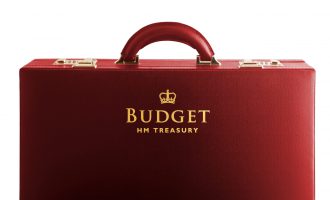A lot has happened in the world since 2019, Brexit, Covid-19 and conflict in the world, all affecting world trade.
By looking at key quarters and the value of imports and exports for the UK shows that world trade continues to be important, with levels continuing to rise:
| Q1 2019 | Q1 2021 | Q2 2021 | Q3 2023 | |
| Before Covid-19 Post Brexit Most recent | ||||
| £millions | £millions | £millions | £millions | |
| Total Exports | 187,317 | 156,517 | 170,177 | 213,519 |
| Total Imports | 175,147 | 156,702 | 162,008 | 218,031 |
| Trade Balance | 12,170 | (185) | 8,169 | (4,512) |
Post Brexit, (when the UK left the European Union), the rules relating to the importing and exporting of goods into and out of the UK, continue to change, so many businesses both large and small find using a Customs Agent to act on their behalf for the smooth transit through Customs very useful.
H M Revenue and Customs (HMRC) regularly publish a list of Customs Agents and Fast Parcel Operators on their website to assist businesses to find a suitable professional to assist them.
One word of warning however, from HMRC itself:
“Businesses on these lists are not vetted, approved or recommended by HMRC. The information is provided to HMRC by the customs agents and fast parcel operators, and HMRC does not verify or guarantee how current or accurate it is”.
Measures are put in place in the UK, such as Postponed VAT Accounting, (PVA), and Deferment Accounts, that can be used for all imports into the UK, treating the EU the same as the rest of the World (subject to special country conditions), has been welcomed to ease transit through Customs into the UK, but care needs to be taken.
The Principal Business using a Customs Agent will still be responsible for correctly accounting for Import VAT and Duty, and making sure that the appropriate records are kept and certificates supporting the payment of import VAT and duty are retained in either digital or paper form.
Two common problems that businesses have found in using the biggest, most well-known international Customs Agents are:
- Use of PVA as the default method of accounting for VAT, when there may be cases that this is not appropriate i.e. where the business makes VAT exempt supplies and cannot use PVA on their VAT return – in this case import VAT will need to be paid at the time of import or use made of a deferment account belonging either to the Principal Business or the Customs Agent.
- Failure by the Customs Agent to supply the documentation to prove that imports have been declared and import VAT and Duty paid as appropriate.
The post Brexit honeymoon period is coming to an end and businesses need to be aware that HMRC, may carry out compliance visits and raise assessments where VAT and Duty has not been correctly declared and paid on imports.
HMRC have 3 years from the date of the Customs entry to issue a Customs debt notification.
Who is liable for Customs Debt and VAT?
The person or organisation (Principal), who made the customs declaration relating to the goods being imported is liable for the customs debt.
If the declarant uses an agent or representative to make a customs declaration on their behalf, the Customs Agent may be liable depending on the type of representation.
There are two types of representation:
Direct Representation
If a Customs Agent acts as a direct representative of the Principal Business, the Principal is solely liable for the customs debt.
However, if the Principal Business gives clear instructions and the Customs Agent makes a deliberate or unreasonable error, the Customs Agent, may also become jointly and severally liable.
The Principal Business should agree with the Customs Agent dealing with Customs if you, the Principal Business, will need to use their own deferment account, or if they will use the deferment account of the Customs Agent.
Indirect Representation
If an agent makes a customs declaration as an indirect representative of the Principal Business, both the Customs Agent and the Principal Business will be jointly and severally liable for any Customs debts.
If the agent is the holder of the authorisation for a customs procedure, such as inward processing or a customs warehouse, that the goods have been placed under, they will be responsible for any debt owed as a result of:
- Procedure not being discharged correctly
- Any action taken by them that caused goods to be unlawfully removed from Customs Control
Protection from Risk for Principal Business
Many Principal businesses therefore take care in their choice of Customs Agent and insist that the relationship is one of Indirect Representation so that the responsibility and risks are shared between both the Principal Business and the Customs Agent.
Setting out the terms for Customs transactions are also important to prevent misunderstandings and future Customs declaration problems.
Risk for the Customs Agent
Customs Agents are in business to provide a service at a profit and should consider the risk of taking on the role of Indirect Representation in order to secure a contract, as they may become liable if the Principal Business defaults.
Recent Case Study
Post Brexit, an EU business registered for VAT in the UK in order to continue to trade with UK customers.
The EU business did not engage a UK adviser to prepare UK VAT returns, and simply did not submit UK VAT returns, and in so doing failed to reclaim a substantial amount of import VAT to which they were due.
The EU business had engaged a UK Customs Agent to deal with the Customs declarations on their behalf as an indirect agent. Some of the imports were made by paying the import VAT on entry into the UK, and some were made using PVA.
As the EU business was not completing UK VAT returns and reclaiming the UK import VAT suffered, the EU business went into liquidation.
As the EU business went into liquidation and had not correctly accounted for the import VAT under PVA by submitting VAT returns, HMRC exercised the right to make the UK Customs Agent liable for the undeclared VAT.
Fortunately, Scrutton Bland were able to assist both parties, by negotiating with HMRC to prepare the VAT returns on behalf of the EU business which resulted in a large repayment of import VAT that was paid to the EU professionals acting on behalf of the EU business in liquidation, and the cancellation of the VAT assessment raised on the UK Customs Agent.
If the EU business had engaged a UK tax adviser to file the UK VAT returns the business might not have failed.
How can Scrutton Bland Help?
Whether you are a business seeking to make imports or exports or in business as a Customs Agent, we are here to provide advice to ensure that customs duty and VAT transactions are correctly accounted for, and also to offer guidance as to how to avoid some of the potentially expensive pitfalls of getting the procedures wrong. To get in touch with a member of our specialists please call 0330 058 6559 or email hello@scruttonbland.co.uk







